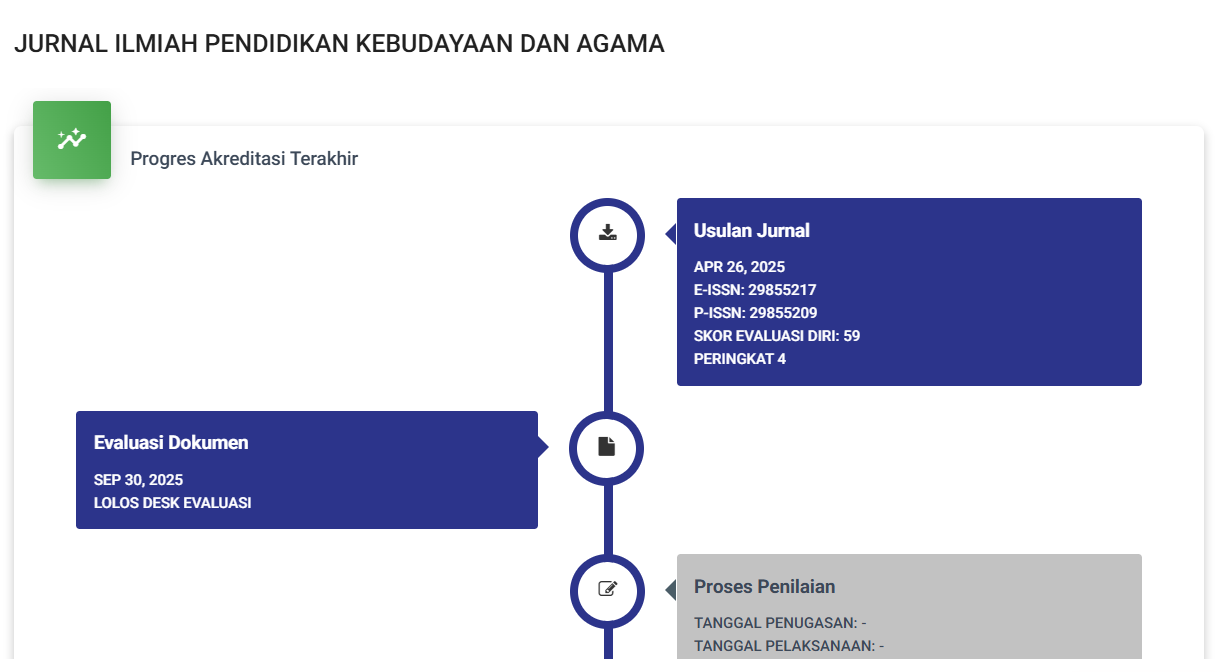Studi Hadis Larangan Menunda Shalat Karena Makan
DOI:
https://doi.org/10.59024/jipa.v2i2.673Abstract
Abstract. This research is motivated by the importance of prioritizing prayer compared to other activities. A hadith from Sunan Abu Dawud suggests that the Prophet did not allow prayers to be postponed because of food or other reasons. And this hadith seems to conflict with other more popular hadiths such as the authentic Bukhari hadith and the authentic Muslim hadith. In the hadith narrated, it has the same meaning, namely allowing to prioritize eating over prayer, but from the hadith of Jabir bin Abdullah, it appears to be inconsistent with other hadiths from Anas bin Malik and father. In the history of Jabir bin Abdullah, it appears that there was a prohibition on the Prophet to prioritize eating and other activities compared to others. with prayer. Meanwhile, Anas bin Malik and Aisyah are allowed to prioritize eating over praying. This research is library research. Library research is a research activity carried out by collecting data directly from libraries and books related to the problem to be researched directly. Meanwhile, the type of research used in this research is qualitative research using takhrij al-hadith, sanad criticism and hadith understanding methods. The results of this research, seen based on the analysis of the hadith writer from Jabir bin Abdullah, do not appear to be in line with other hadiths from Anas bin Malik and father. In the history of Jabir bin Abdullah, it can be seen that the Prophet's prohibition on prioritizing eating and other activities compared to prayer. Meanwhile, Anas bin Malik and Aisyah are allowed to prioritize eating over praying. The purpose of the hadith prohibiting delaying prayer is to prevent the makruh act of praying for people who are in a condition of hunger and other things because this clearly disturbs the sincerity of the heart.
References
Abdillah Syamsuddin Abu. (2010). Terjemahan Fathur Qarib (Pengantar Fiqih Imam Syafi’i). Cet.1, Surabaya: Mutiara Ilmu.
Al-‘Asqalani Ibn Hajar. (1327 H). Tahzibu Al-Tahzib. Jilid. 1-8 t.tp: Majlis Dairah Al-Ma’rifah.
Al-Adaby Salahuddin ibn Ahmad. (1403H/1983M.). Manhaj Naqd Matn. Beirut: Dar Al-Afaq Al-Jadidah.
Al-Azadi Abu Dawud Sulaiman Ibn Al-A’sy’ats Al-Sijistani. (1996). Sunan Abu Dawud. Jilid. 3, Bairut: Dar Al-Kutub Al-‘Ilmiyah.
Albukhary Muhammad Bin Ismail Bin Ibrahim Bin Almughirah Aljuf’i. (1992). Sunan Bukhari. Jilid. 4, Bairul: Dar Al-Fikri, t.t.
Al-Daruquthni Abu Al-Hasan Ali Ibn Umar Ibn Ahmad Al-Baghdadi. (1994). Sunan Ad-Daruqithni. Jilid. 3-4, Beirut: Dar Al-Quthn.
Al-Mazzi Hafiz Jamaluddin Abu Al-Hajaj Yusuf. (1994). Tahdzib Al-Kamal Fi Asma’ Ar-Rijal. Jilid. 2-10, Bairut: Dar Al-Fikri, t.th.
Al-Razi Ibn Abi Hatim. (2010). Al-Jarh Wa Ta’dil. Jilid. 2-8, Bairut: Daar Al-Kutub Al-Ilmiyah.
Al-Naysaburiy Abu al-Husain Muslim bin al-Hajjaj al-Qusyairiy. (1998). Shahih Muslim. Jilid. 3, Riyadh: Dar Thayyinah.
Aranda Ismail. (2015). Metode Penentuan Awal Shalat Dalam Perspektif Ilmu Falak. Jurnal Universitas Islam Negeri Ar-Raniry, Vol. 14, No. 2.
Devi Aulia Diana. (2020). Studi Kritik Matan Hadis, Jurnal Studi Ilmu Al-Qu’ran Dan Hadis,. Vol. 14, No. 2, UIN Sunan Kalijaga Yogyakarta.
Hawwas Abdul Wahhab, Azzam Abdul Aziz Muhammad. (2013). Fiqih Ibadah. Jakarta: Amzah.
Imritiyah Siti. (2016). Kajian Hadis-Hadis Adab Makan Dan Minum Perspektif Ilmu Kesehatan,. Skripsi: Program Studi Tafsir-Hadis Fakultas Ushuluddin Dan Filsafat Universitas Islam Negeri Syarif Hidayatullah Jakarta.
Imtyas Rizkiyatul. (2018.). Metode Kritik Sanad Dan Matan. Ushuluna: Jurnal Ilmu Ushuluddin, Vol. 4, No. 1.
Ismail Syuhudi. (1992). Metodologi Penelitian Hadis Nabi. Jakarta: Bulan Bintang.
Ismal Syuhudi. (1988.). Kaedah Kesahihan Sanad Hadis (Telaah Krtitis Dan Tinjaun dengan Pendekatan Ilmu Sejarah. Jakarta: PT Bulan Bintang.
Mensink J.P, A.J. Wensink. (1956). Al-Mu’jam Al-Mudahras Li Alfadz Al-Hadis. Jilid. 1-3, Leiden: Ej. Brill.
Sabiq Sayyid. (1940). Fiqih As-Sunnah. Jilid.1, Bandung: Alma & Apos; Arif.
Downloads
Published
Issue
Section
License
Copyright (c) 2024 JURNAL ILMIAH PENDIDIKAN KEBUDAYAAN DAN AGAMA

This work is licensed under a Creative Commons Attribution-ShareAlike 4.0 International License.










